Care Work
Care & caring societies
Destroy the patriarchy
not the planet!
Care work often remains invisible in our system. We understand it as the totality of family and voluntary care for others (e.g. housework, child rearing, caring for relatives or helping neighbors), paid care work in institutions such as kindergartens, hospitals and elderly care homes, as well as care work for oneself. Worldwide, women* perform three-quarters of unpaid care work, more than three times as much as men*. Care work can also be thought of even more broadly, as all actions that provide for the existence and renewal of society, e.g. the expansion of the welfare state, the protection of our environment, or living in solidarity.
Without care work, every society would collapse, because caring for one another is the core of any economy. As obvious as this sounds, things are going differently at the moment. The economy can only continue to grow, when women* and especially migrant workers are being exploited, and when our ecological foundations of life are being destroyed.
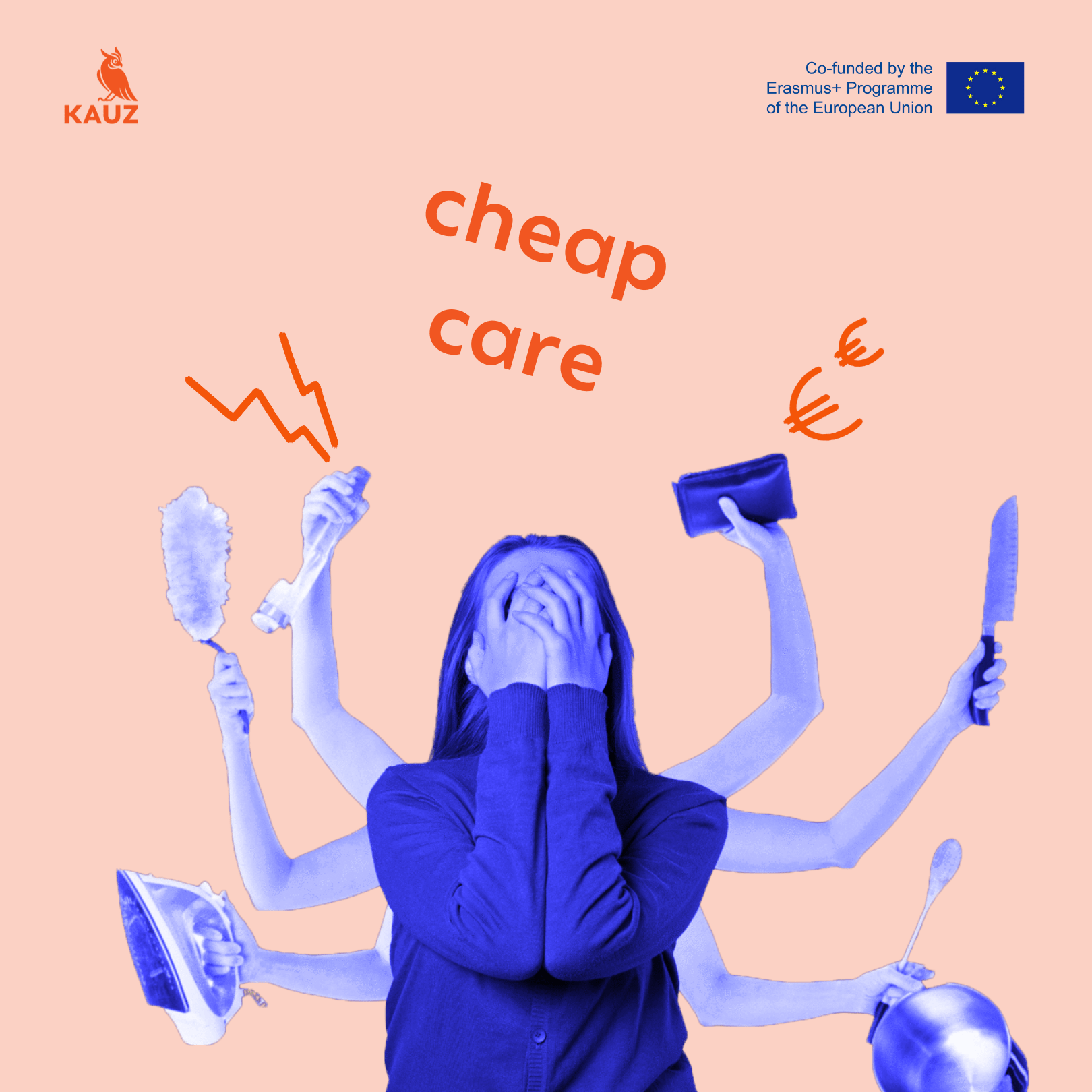
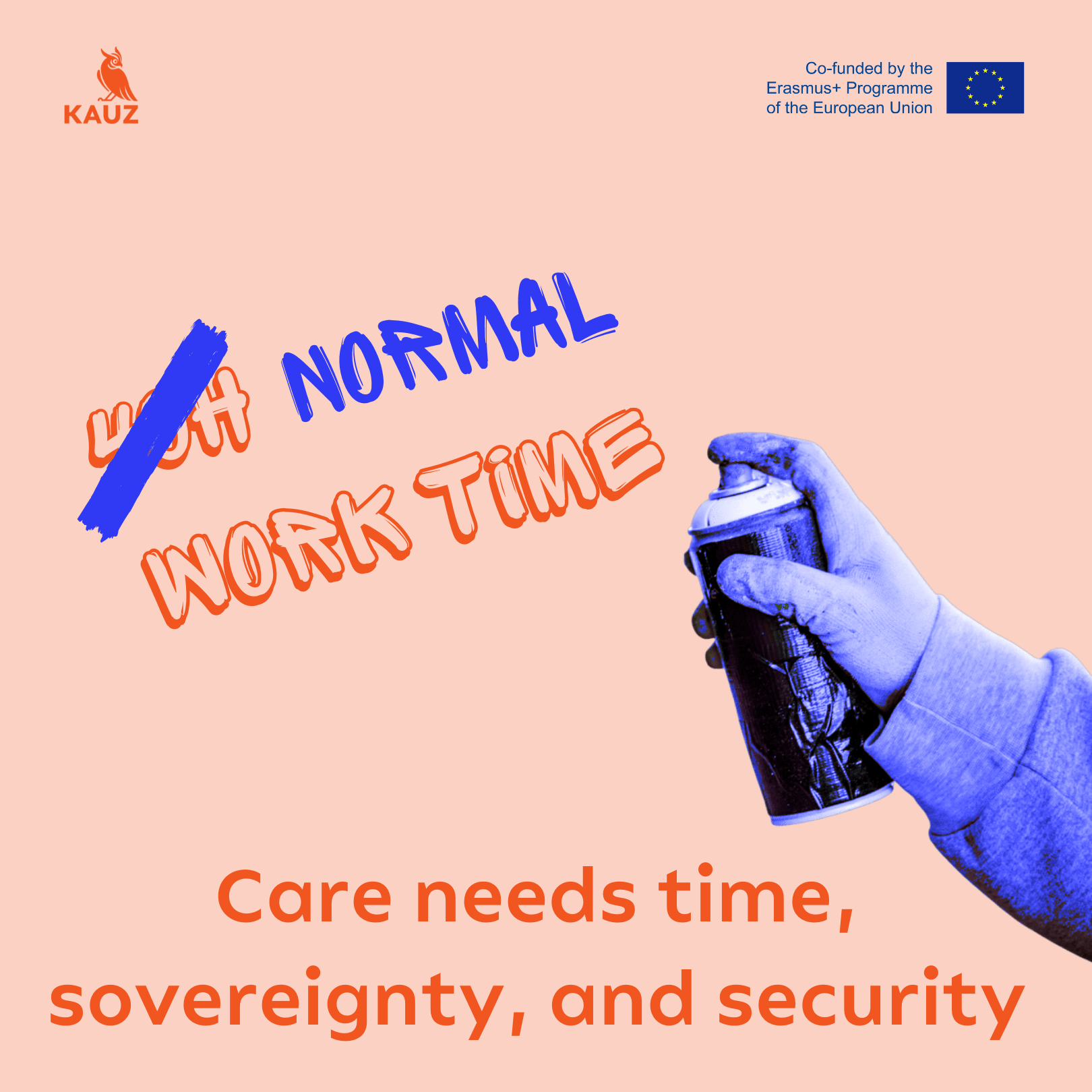
Global care chains
The example of Global Care Chains can explain the unfair foundations and challenges within care work. Global Care Chains signifies that people from countries with low income levels perform care work in countries with higher income levels. The model was originally developed by care workers from Southeastern Europe themselves, so that they could manage their affairs in their countries of origin and be able to earn a living wage at the same time. However, the model has become highly commercialized and is nowadays only profitable through the exploitation of care workers. People in countries with high wage levels benefit from the additional skilled workers (care gain), while in Slovakia or Romania, for example, there is a care gap in the families of care workers (care drain), which usually has to be filled by relatives or close caregivers.
Global care chains help to defuse the deeply gendered conflict over the unequal distribution of unpaid care work in Western countries. Those (usually women*) who are expected to provide unpaid care work for their families can now choose to not do it. For women* from low-wage countries who must migrate to pay their bills or debts, this choice is out of reach.
Global Care Chains are a problematic solution to an increasingly pressing problem: the precarious working conditions of caregivers. Global Care Chains are politically established and channeled via migration systems. They stabilize the existing care system and gender relations and only seem to solve the problem of care shortages in wealthier countries. Similar to natural resource exploitation, peripheral countries are also exploitatively deprived of vital resources through care migration.
Care Society
The counter-model to exploitation within the care sector is a society based on the principle of caring for another. The so-called care society builds on the conscious perception of dependencies or needs of all people. We need a care revolution so that not only people with a lot of money can afford professional care work, but also so that care workers get fair working conditions and wages and unpaid care work can be shared more fairly and gender-just. We all depend on the care and concern of others during our lives and that’s exactly why we need new ideas. This includes a new distribution of paid and unpaid work, reduction of working hours, time sovereignty, reduction of gender inequality and existential security.
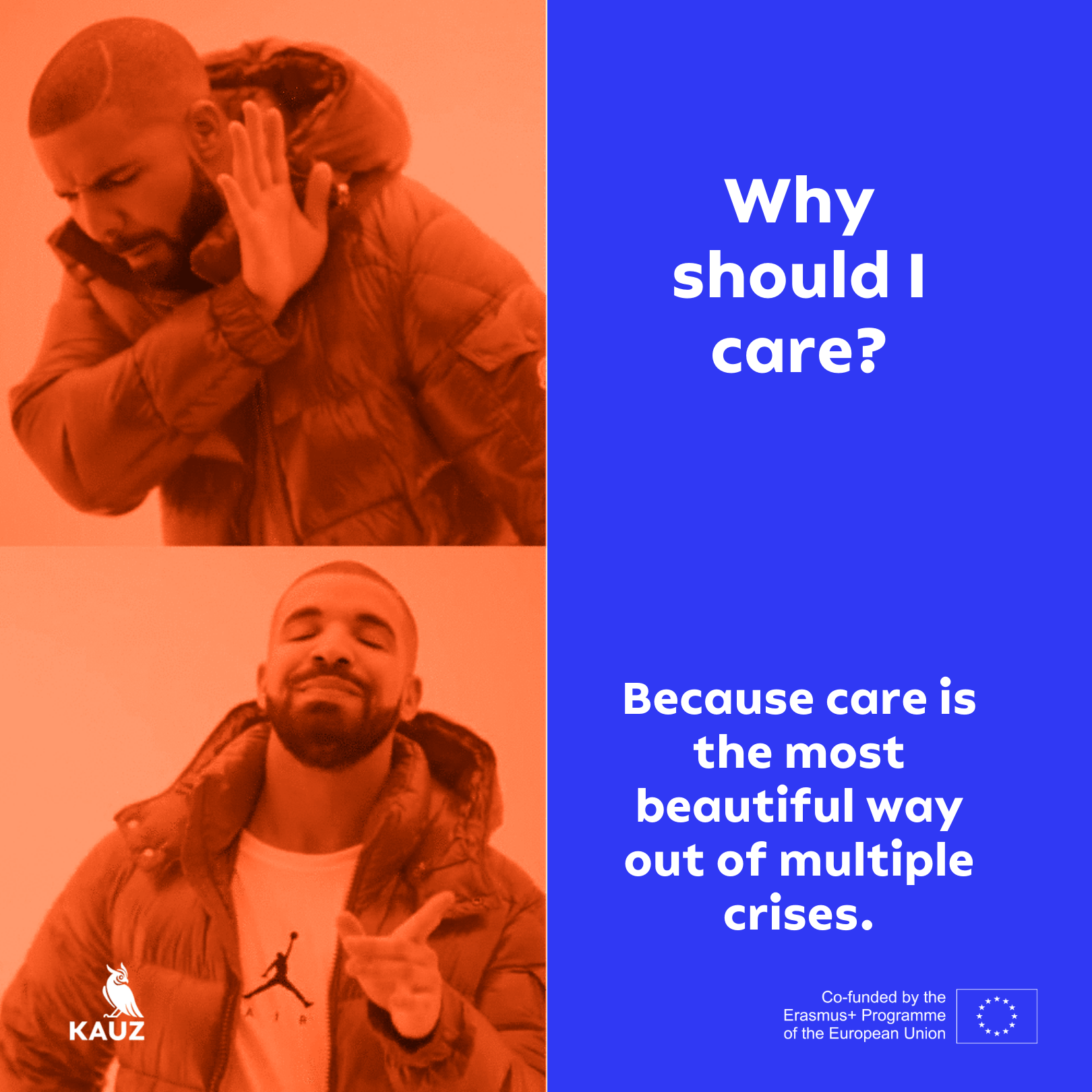
Microlearnings


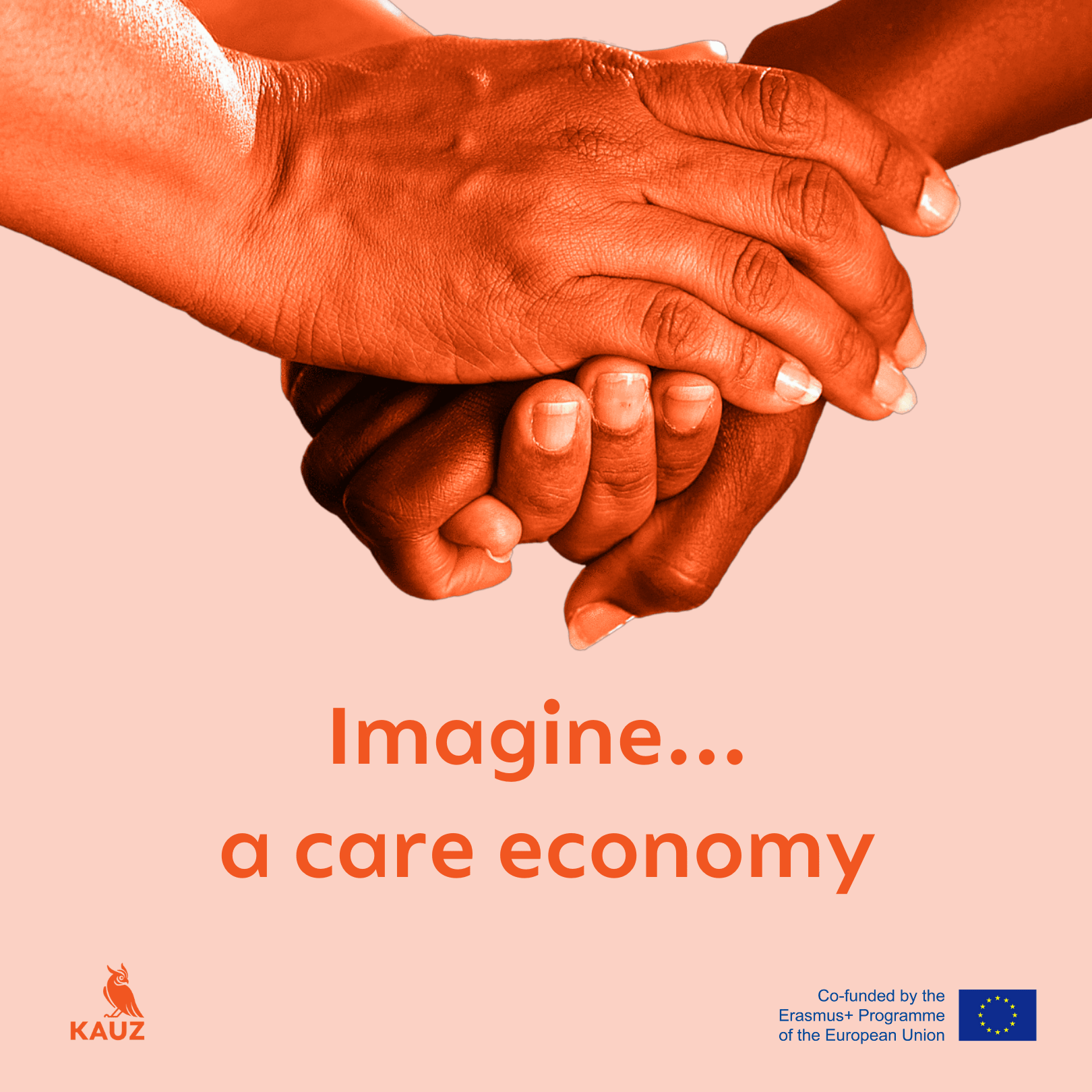
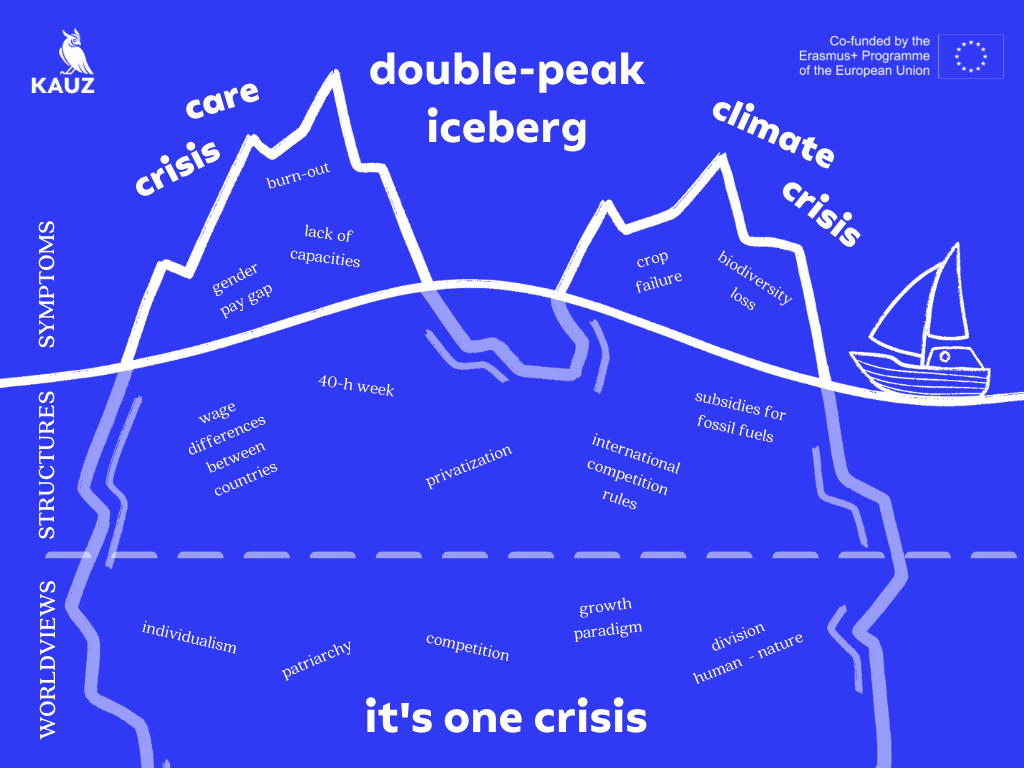
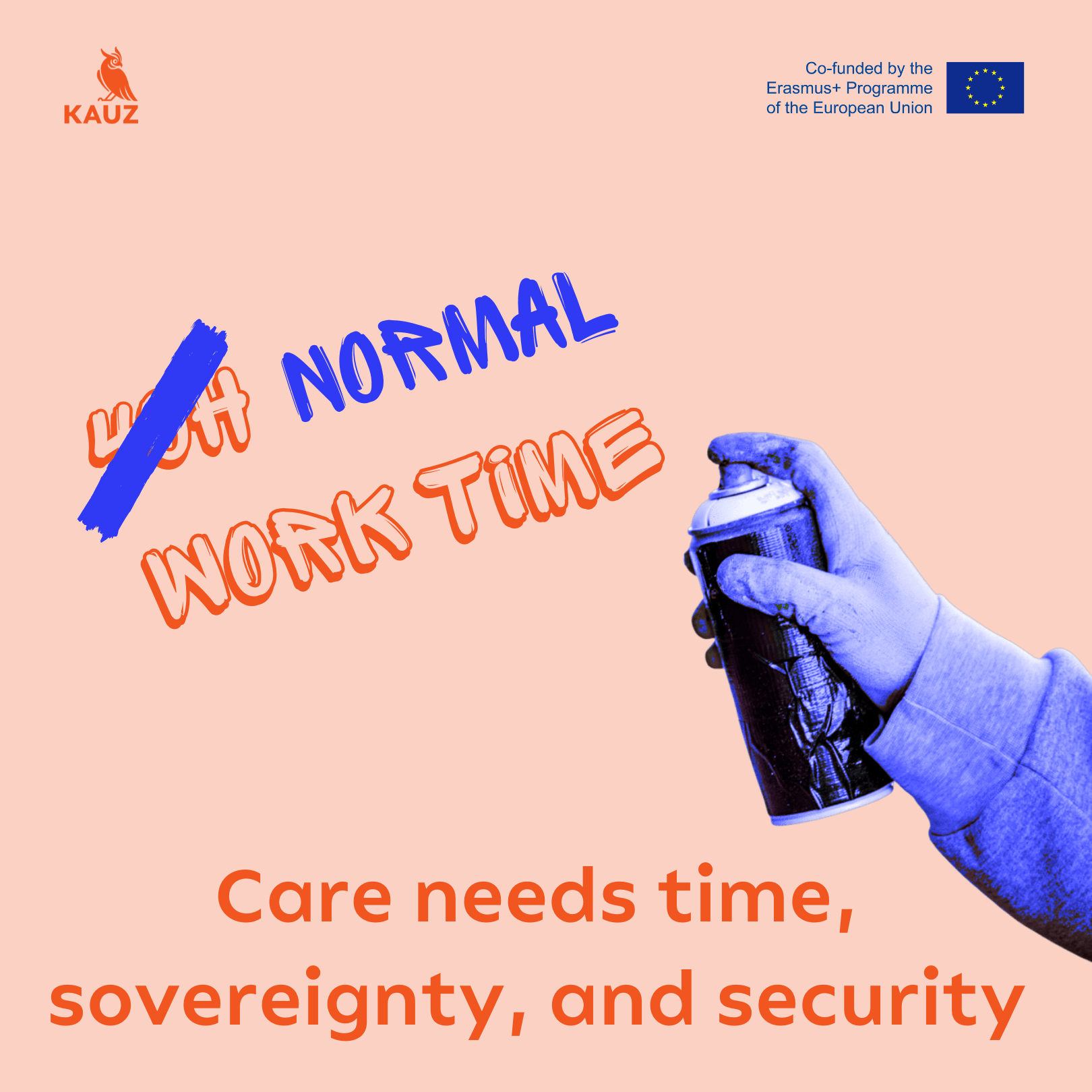
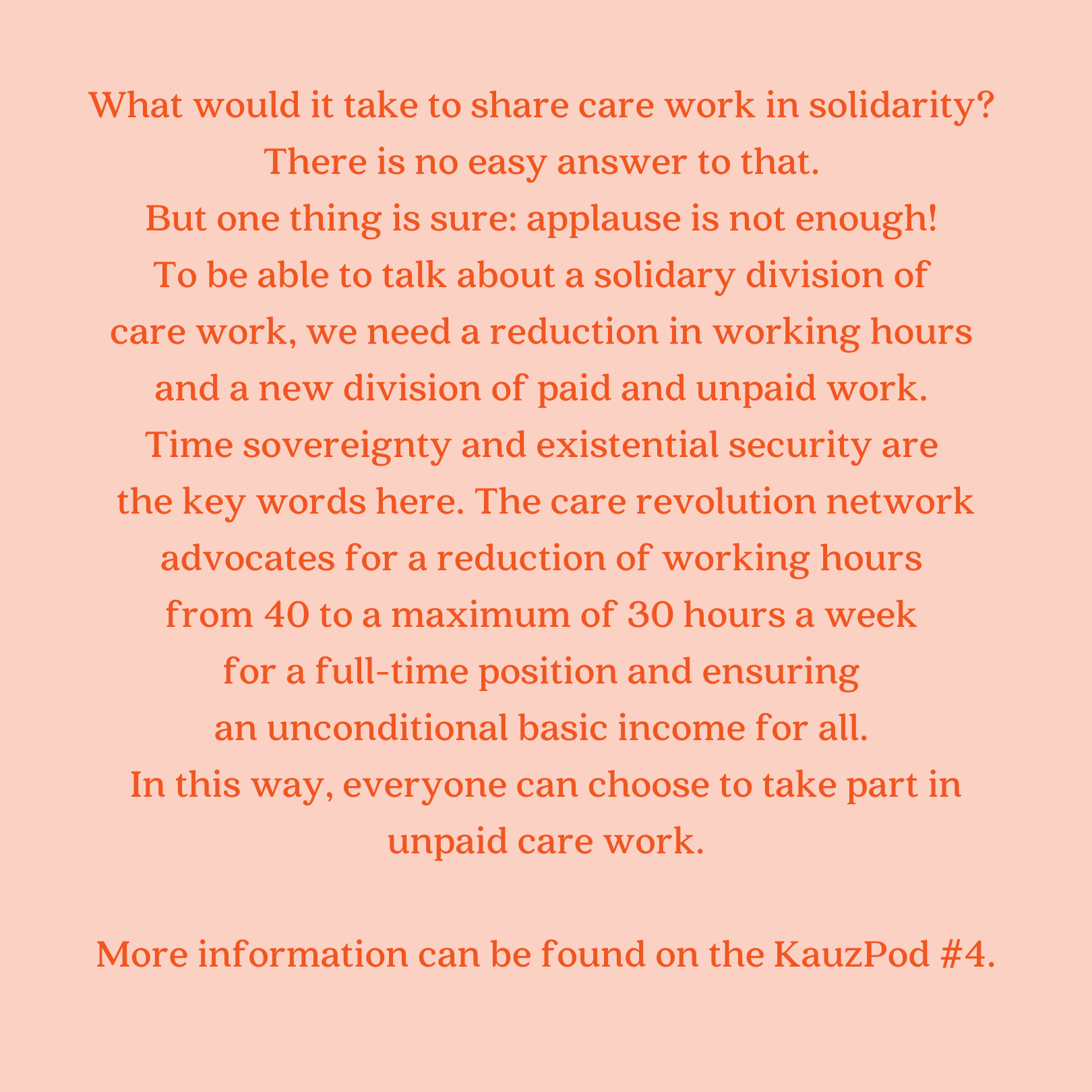
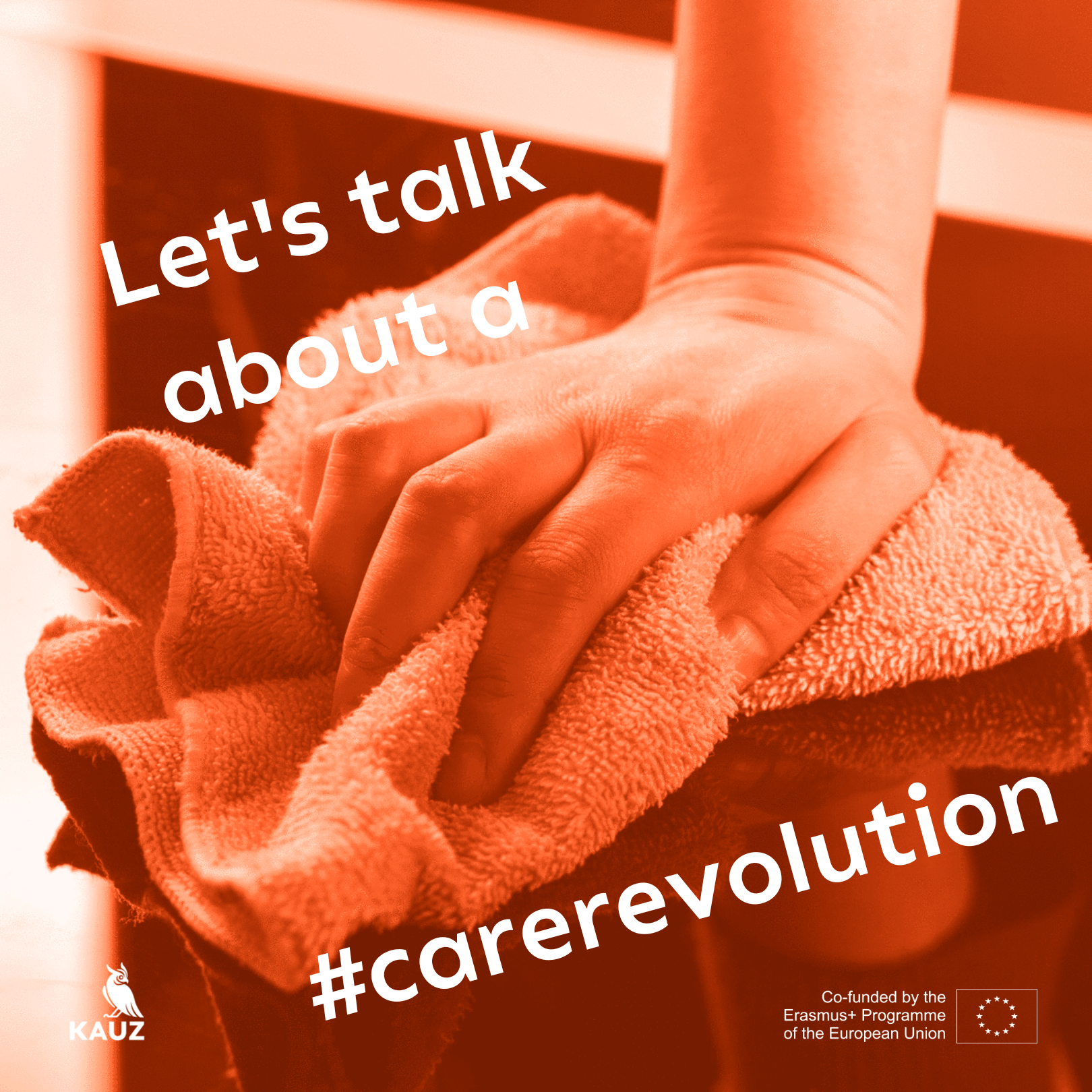
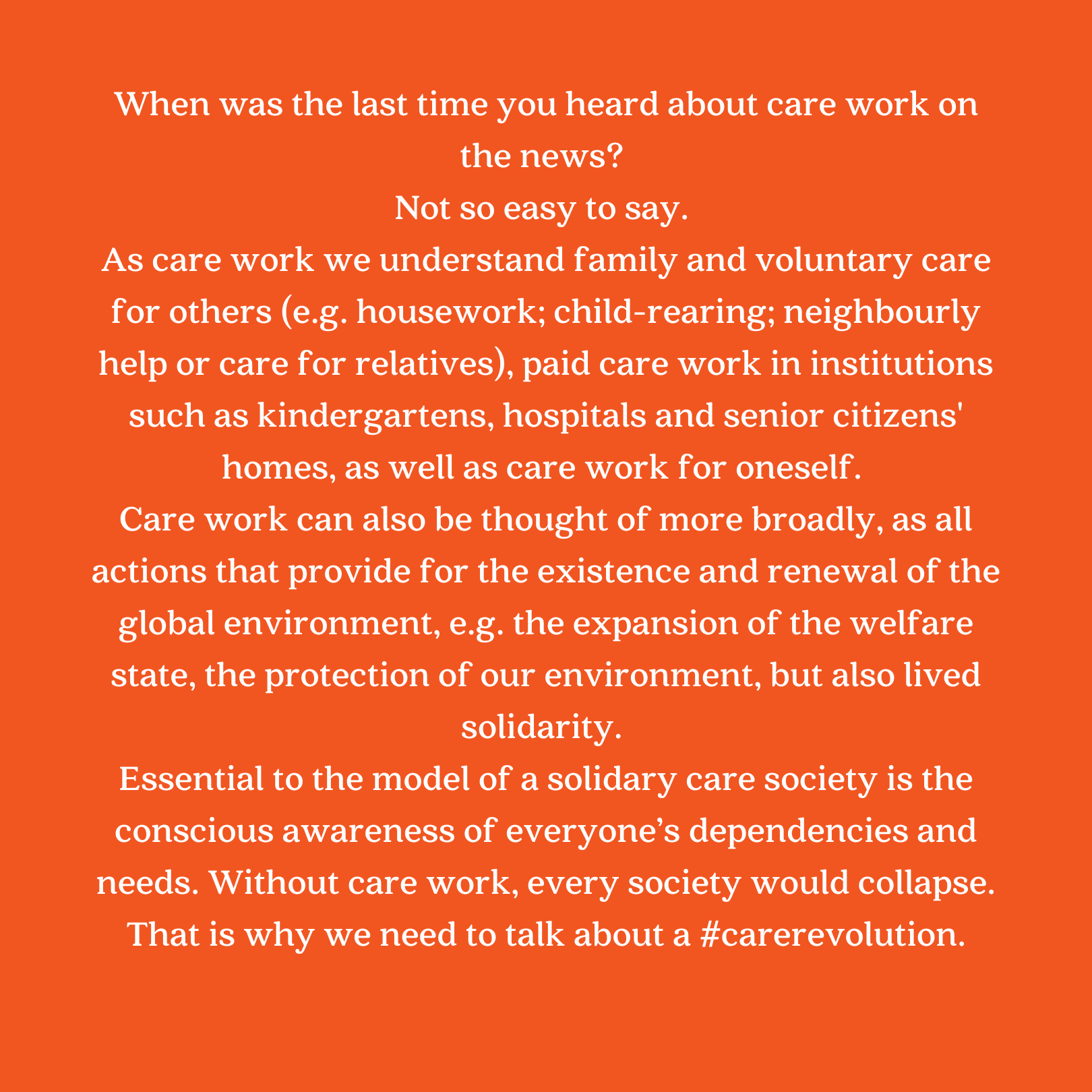
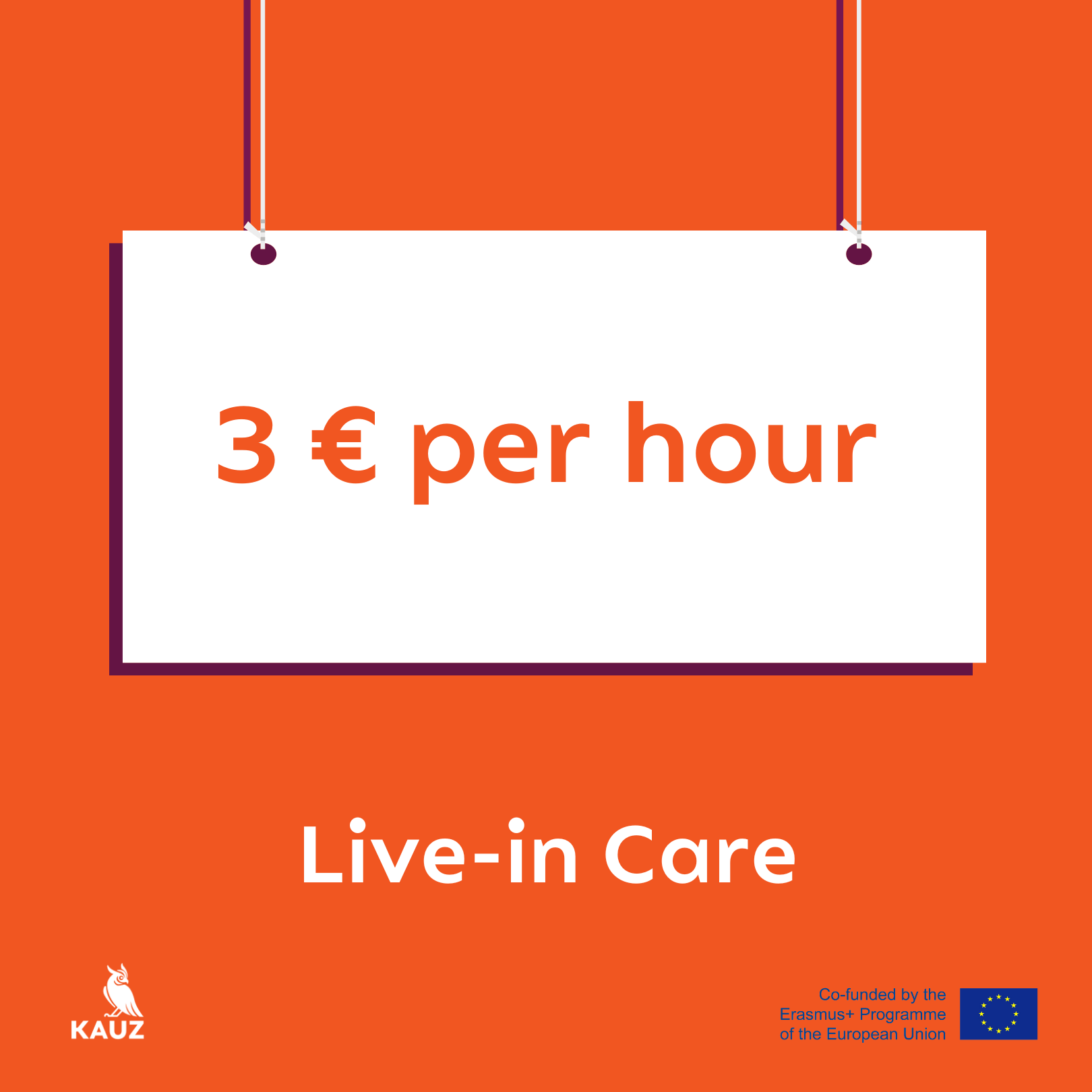
Workshops
Caring4future: Drafts of a future based on solidarity
Media reports, election posters and the demonstration signs of students regularly remind us that our mode of living is ecologically and socially unsustainable. In order for the economy to continue to grow, costs are outsourced and ecological livelihoods are exploited, as is underpaid and unpaid (care) work of women and migrants. But what would children learn in a society that puts care at its center? Under what conditions would people age in such a society? And what would work e that was oriented towards people’s needs rather than profit maximization look like?
